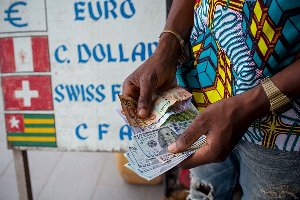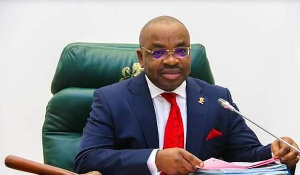Accra, Sept. 30, GNA - Dr Henry Akpenamawu Kofi Wampah, first Deputy Governor of the Bank of Ghana, on Friday appealed to Chartered Accountants and other professionals from other institutions to strongly support efforts aimed at anti-money laundering in the country. He said money laundering was a complex crime with dire consequences fo= r both economic and financial institutional stability as well as denting the country's reputation, which needed much attention to redress. Dr Wampah made the appeal when he addressed the Institute of Chartered Accountants, 2011 presidential Luncheon in Accra on the theme: "Money-laundering: Trends and remedies".
The Presidential Luncheon presented the opportunity for accountants an= d the business community to network and share ideas on how to move the country's economic development agenda in a positive direction. Dr Wampah said money laundering was a crime in which resources were diverted to less productive activities thus depriving government of domesti= c revenue required to boost the economy.
He said money laundering was also facilitating domestic corruption, increased crime and undermined national security as well as stability and stressed the need to join hands to fight the canker. He said the flaunting of ill-gained wealth through money laundering activities in any economy destroyed the moral fibre of society since it discouraged hard work and retarded the development of indigenous entrepreneurship.
Dr Wampah said a successful fight against money laundering required comprehensive and coordinated efforts to detect, prevent and prosecute the perpetrators and that the G7 countries took a step to develop an international response to counter money laundering activities. He said the scale of money laundering in the sub-region estimated at about US$73 billion and the scope of laundered funds ranged from tax evasion, corruption, oil bunkering and the drug menace, which had gained notoriety in West Africa.
Mr J.F.O. Blankson, President of the Institute of Charted Accountants, Ghana (ICAG), said the size of money laundering worldwide was estimated to be US$500 billion, which had consequences for the global economy. He said it was important for the local financial institutions to adher= e to international best practices since the Ghanaian economy was increasingly integrated into the global financial system due to the nature of foreign investments into the economy.
He said accountants were listed as one of the responsible and accountable institutions to help fight money laundering and that it was their obligation to help fight the menace to ensure an enhanced economy.
General News of Saturday, 1 October 2011
Source: GNA
















